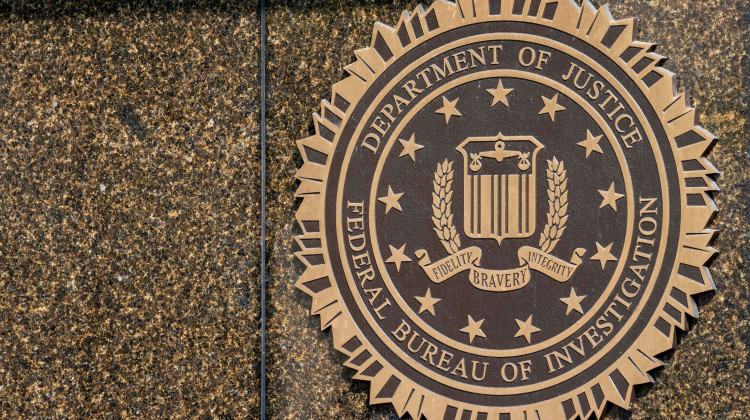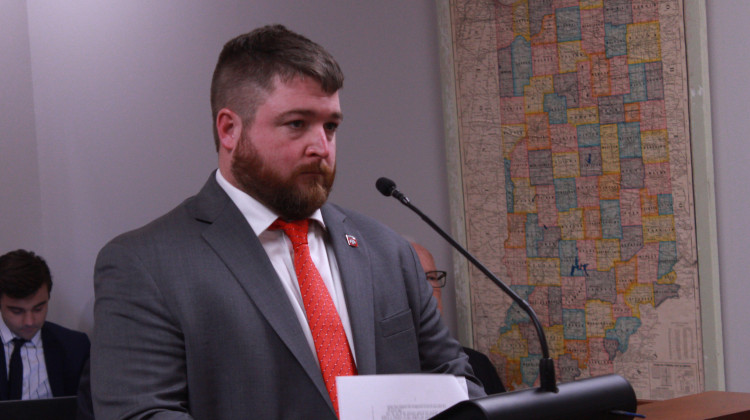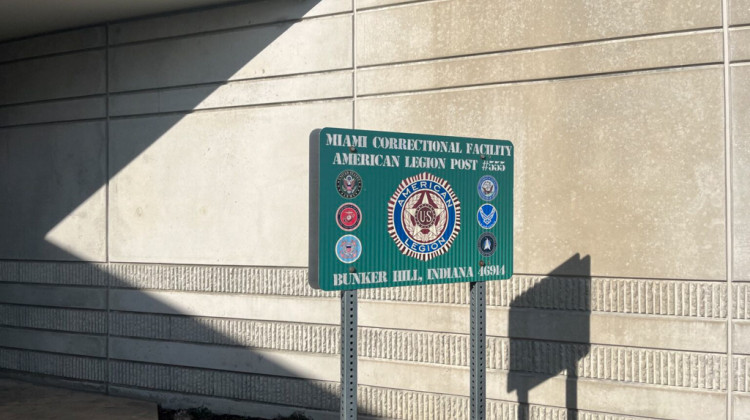
The seal on the J. Edgar Hoover FBI Building on June 9, 2023, in Washington, D.C.
AP Photo/Alex Brandon, FileReports of hate crimes in Indiana trended slightly downward in 2024, according to new annual data. There were 149 incidents in Indiana, down 17% from the previous year.
Across the country, incidents also decreased, but 2024 was still one of the worst years since the FBI began collecting data decades ago. There were 11,679 incidents reported nationwide — that’s 1.5 percent less than the 2023 record high of 11,862 incidents.
Hate crimes are crimes committed with a bias against a person’s or group’s perceived or actual characteristics, including race, color, religion, national origin, gender, sexual orientation, gender identity, or disability.
Last year, about 60 percent of hate crimes recorded in Indiana were based on race, ethnicity, or ancestry — the same percentage as 2023. But hate crimes in this bias category have been trending downward statewide since at least 2020, when they accounted for 67% of all incidents.
Of the remaining incidents in 2024, 19% were based on religion, 13% on sexual orientation, 8% on gender identity, 4% on disability, and 1% on gender.
The most targeted groups in Indiana were Black people, white people, Hispanic or Latino people, and Jewish people, followed by the larger LGBTQ community. Nationally, the most targeted groups were Black people, Jewish people, and gay men.
Researchers have consistently pointed out that the numbers in the federal data are an undercount.
“Although it does provide us with these estimates, we always have what’s called the ‘dark figure of crime,’ which is the percentage of crimes that go unreported,” said Stacie Merken, a professor of criminal justice at Indiana University South Bend. “So we will never know 100% — with 100% accuracy — how many actual hate crimes are occurring.”
Her research on hate crimes examined media coverage, fictional representation, and motivation, finding that a lot of representation focused on the victim but didn’t delve into the suspect’s motivation.
Merken said that there are several reasons victims may not report crimes: They may not know that what they’ve experienced is a hate crime, for example. Or they may experience what’s known as “recurring victimization,” where the same crime has affected a person more than one time, and decide not to report the second incident. And some groups have historically distrusted law enforcement.
But on the other hand, law enforcement agencies may also be underreporting, she said.
“If the reporting is lacking by the victims, then likely the police departments are thinking that there is not anything going on, which is not the case,” she added.
Reporting criminal statistics to the FBI is voluntary for state and local law enforcement agencies, and some do not participate in that system. Or, the crime may not meet federal or a state law’s definitions of bias, which can impact how the data is coded in the FBI’s larger universe of criminal justice data.
The FBI has transitioned to a new criminal incident reporting system that allows for agencies to include more detail. It has taken time for local law enforcement to update to this system, but it could enable a deeper analysis of data.
The agency said that 16,419 law enforcement agencies across the country participated in hate crime data collection last year, covering over 95% of the U.S. population.
In Indiana, 240 local and state police agencies submitted crime data to the FBI. Of those, 181 agencies did not report a hate crime last year. Only 25% of agencies reported at least one incident.
Despite the underreporting problems, the FBI has collected and shared criminal justice data since 1930. Merken said that criminal justice researchers consider it to be one of the more stable data sets.
Contact WFYI data journalist Zak Cassel at zcassel@wfyi.org.
 DONATE
DONATE






 Support WFYI. We can't do it without you.
Support WFYI. We can't do it without you.